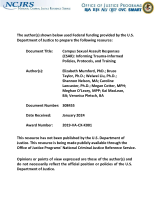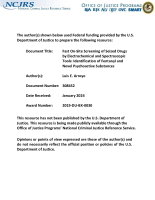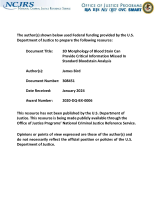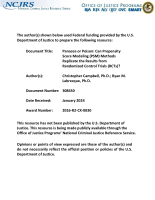Campus Sexual Assault Responses (CSAR): Informing Trauma-Informed Policies, Protocols, and Training
Date Published
December 2023
Agencies
NIJ-Sponsored
Publication Type
Research (Applied/Empirical)






